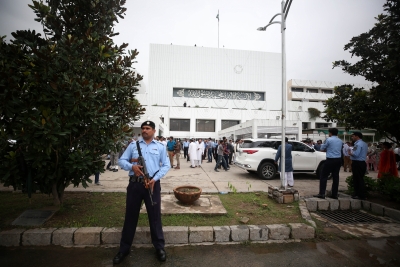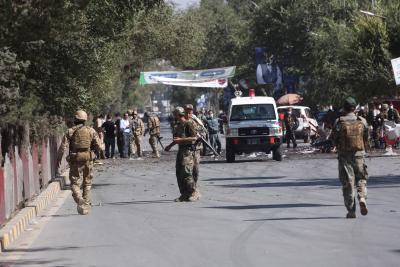
Islamabad, Sep 2 (IANS) Conflicts of interest pervade parliamentary decision-making, change both policy and viewpoint in Pakistan as people do not consider parliament as their representative forum but an exclusive club of businessmen legislating for themselves, a report highlighted on Tuesday.
The risks are economic and political as each scandal weakens the legitimacy of democratic institutions, fueling cynicism and disengagement, public policy expert Amir Jahangir wrote in an opinion piece for The News International.
“The credibility of our democracy is undermined when lawmakers with direct business stakes sit in judgment over policies and projects from which they stand to gain. This weakness is most glaring in Pakistan’s Standing Committees of the Senate and National Assembly, where oversight often collapses into opportunity. A recent case involving a donor-funded project has brought these concerns into sharp focus,” he highlighted.
The expert mentioned that, for years, a small group of politically-connected firms, often accused of cartel-style pooled bidding, have been dominating the infrastructure sector of Pakistan. The entry of a competitive foreign state-owned firm interrupts this pattern. By making use of parliamentary committees to force a re-tender, vested interests are not protecting transparency but protecting their cartel. This is why conflict of interest safeguards are needed.
Jahangir, who leads the Country Partner Institute of the World Economic Forum in Pakistan, mentions that the sugar crisis that happened in 2020 showcased the power of industry cartels which have political support. The government’s inquiry commission revealed how leading political families earned money through subsidies, manipulated pricing and favourable export policies. At the time, some of these leaders were members of parliamentary committees which oversaw commerce and industry. This caused regulatory accommodation and consumer had to pay increased prices while cartels consolidated their dominance.
The conflict of interest, he wrote, is also obvious when lawmakers having direct stakes in TV channels or networks, participate in drafting Pakistan Electronic Media Regulatory Authority (Pemra) regulations, broadcasting policies or advertising rules.
“How can those profiting from media monopolies fairly regulate competition, ownership concentration or ethical standards? Instead of a level playing field, the result has been further concentration, with regulatory frameworks bent to protect incumbents. The erosion of media diversity and independence, in turn, undermines public trust and democracy itself. Taken together, the sugar cartels, the media monopolies, the real estate empires and now the infrastructure contracts, Pakistan’s problem is systemic,” he stated.
“Pakistan does have relevant laws, but they fall short. Article 63(1)(d) of the constitution disqualifies a member who holds “an office of profit in the service of Pakistan”. Article 63(1)(o) extends this to members whose dependents are employed by statutory bodies. Yet both clauses are narrowly applied to government service, not to sprawling family-owned enterprises or contracting firms. The Elections Act, 2017 (Section 137) requires lawmakers to declare assets, while Section 111 allows for suspension or disqualification for false declarations. But there is no provision barring participation in legislation or oversight linked to those business interests. Parliament’s own rules attempt to plug the gap but remain toothless,” Jahangir added.
–IANS
akl/as




